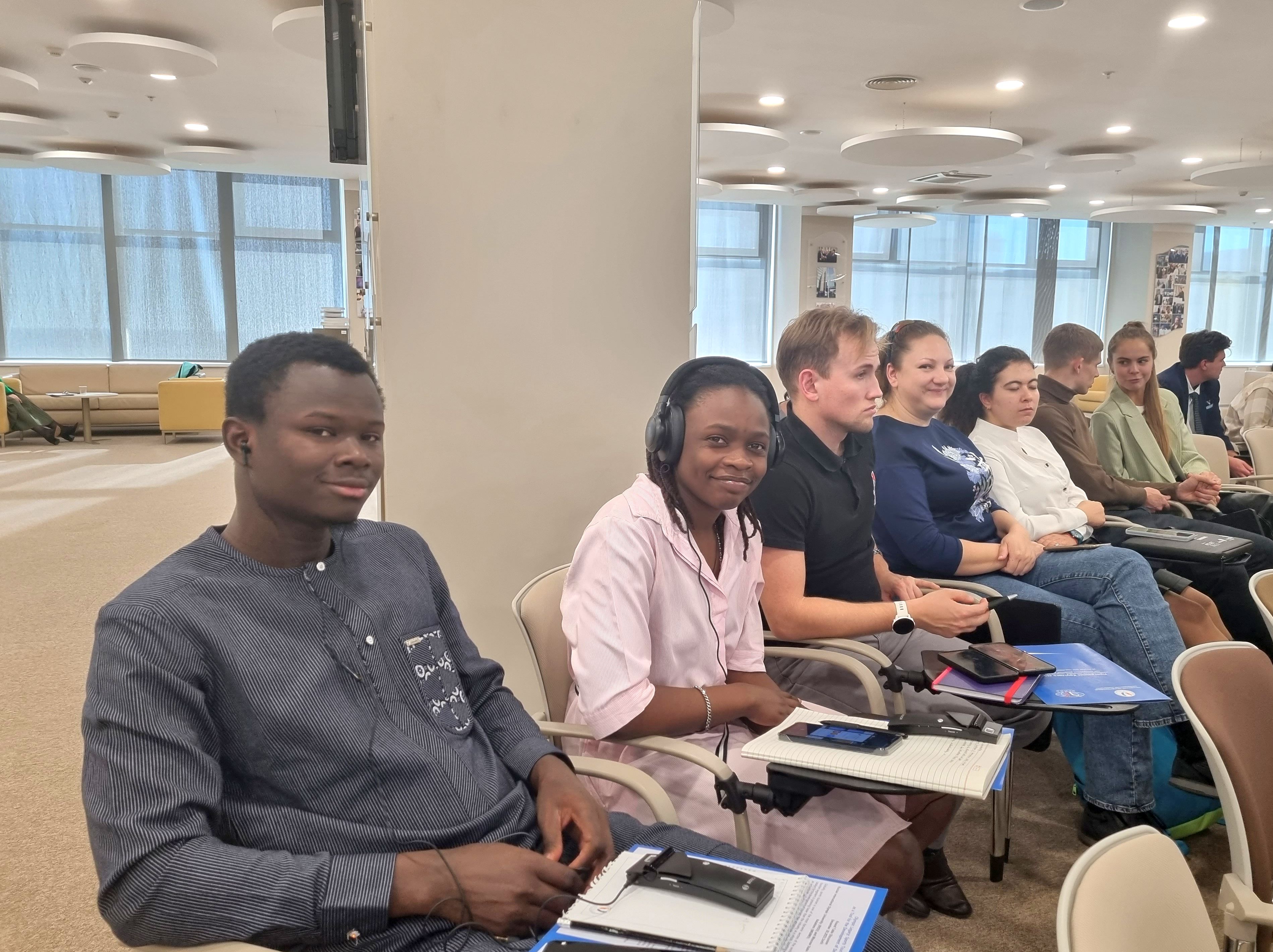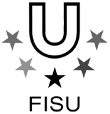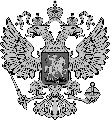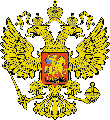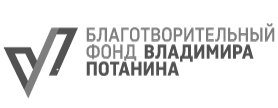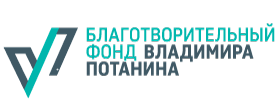The roundtable "Olympic Legacy: Sports Tourism as a Destination Development Tool" kicked off a federally approved programme of events designed to celebrate the tenth anniversary of lighting the Olympic flame in the city of Sochi. It was also part of the programme of the Cross Years of Russian-Chinese cooperation in the fields of sports and physical culture, implemented throughout 2022-2023. Among the participants of the discussion were senior officials and professors from six educational institutions including the Capital University of Physical Education and Sports (CUPES, Beijing), hospitality industry leaders, owners and managers of Olympic venues, representatives of the Sochi City Administration, experts and media. The discussion had a genuinely interactive character due to the contributions from the youth audience - postgraduate students and doctoral candidates from the Russian International Olympic University (RIOU), Sochi State University, MGIMO University and Lomonosov Moscow State University.
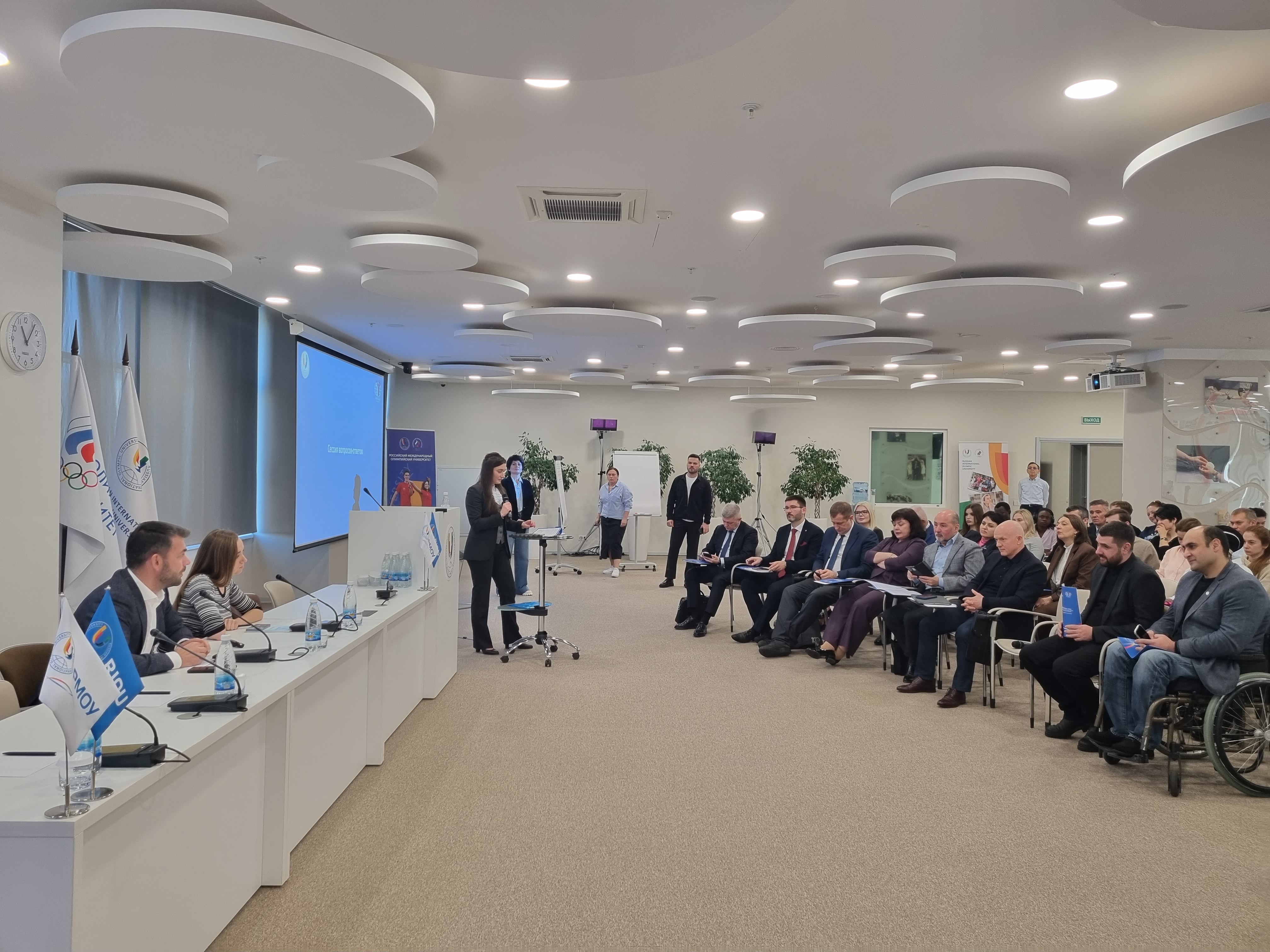
The roundtable was moderated by Olga Polyakova, Subject Group Lead for Event Management at Sheffield Business School, Sheffield Hallam University. When she passed the floor to RIOU Rector, Full Member (Academician) of the Russian Academy of Education, Professor Lev Belousov, he said: "We have gathered today at the right time, in the right place and with the right people. The coming February will mark the ten-year anniversary of the Sochi 2014 Olympic Games, which gives us a chance to look back and address an important question: Has Sochi become a center of attraction for those passionate about sports tourism, and has it become a new sporting destination? No other place is better suited for such a discussion than RIOU - the world's only Olympic University and a key element of Sochi’s intangible legacy. Tourism promotion is viewed as a strategic objective in all regions of Russia, and RIOU has always seen provision of professional training in this area as part of its mission to preserve the Olympic legacy. Finally, the participants of today’s meeting represent a very good mix of academic research and practice. The outcomes of the discussion will be recorded and disseminated across the regions that seek to develop sports tourism in their cities.”
The participants were also welcomed by MGIMO Rector, Full Member (Academician) of the Russian Academy of Sciences, Professor Anatoly Torkunov, and President of the Capital University of Physical Education and Sports (Beijing, China), Professor Zhang Xia, who emphasized that staging the Olympic Games made the city of Sochi "shine" and become a platform for large-scale international sporting events.
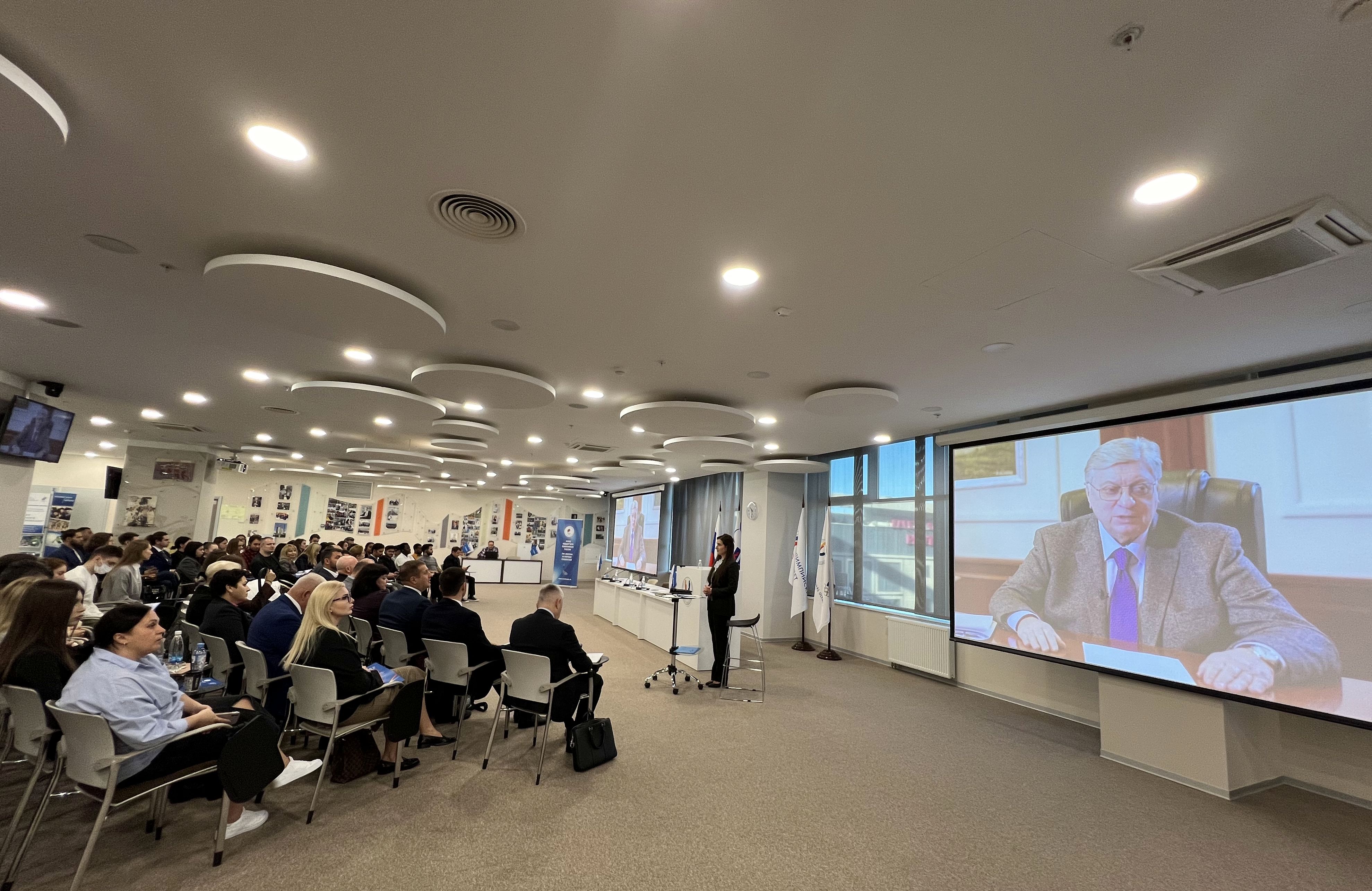
The economic effect of hosting major sports events was discussed by John Beech, Professor at Loughborough University and visiting professor at RIOU; Ekaterina Markina, Deputy Head for Sports Infrastructure and Organizational Work at the Fisht Stadium, Sochi; and Nikolay Kruglov, a RIOU graduate, Olympic medallist and Head of Sports and Tourism Development at the Krasnaya Polyana alpine resort. The speakers identified the most successful and, conversely, failed practices of legacy management by host cities, with Sochi 2014 falling under the first category due to the organizers’ strategic approach. Using three cases of commercial competitions for non-professional athletes - the Night Hockey League, the Ironstar Triathlon and the Sochi Marathon - Ekaterina Markina showed the positive economic impact of such events on the host city.
Issues related to the development of resort areas and maximising their tourism potential were discussed by Alexander Saurin, Chairman of the Board of Directors at Krasnaya Polyana and member of the Public and Expert Council on Tourism under the Russian Ministry of Economic Development; Leila Gandaloyeva, Director for Project Management at the Sochi City Administration; Lev Shagarov, Director for Sustainable Development at Krasnaya Polyana; and Sergey Khvorostyaniy, Deputy General Director for International Relations and Tourism at the Rosa Khutor alpine resort.
Alexander Saurin noted that a lack of planning for future use of sporting events’ legacies reduces their economic effect by 20 to 30%. He also suggested that the term "Olympic legacy" should be enshrined in the regulatory and legal frameworks to avoid inconsistent interpretations and standardize approaches to assessing its impact for various mega events and setting KPIs for managers. Whilst acknowledging the overall effectiveness of support for the construction of the Sochi 2014 infrastructure, he encouraged the investors to rely on their own capacities in future.
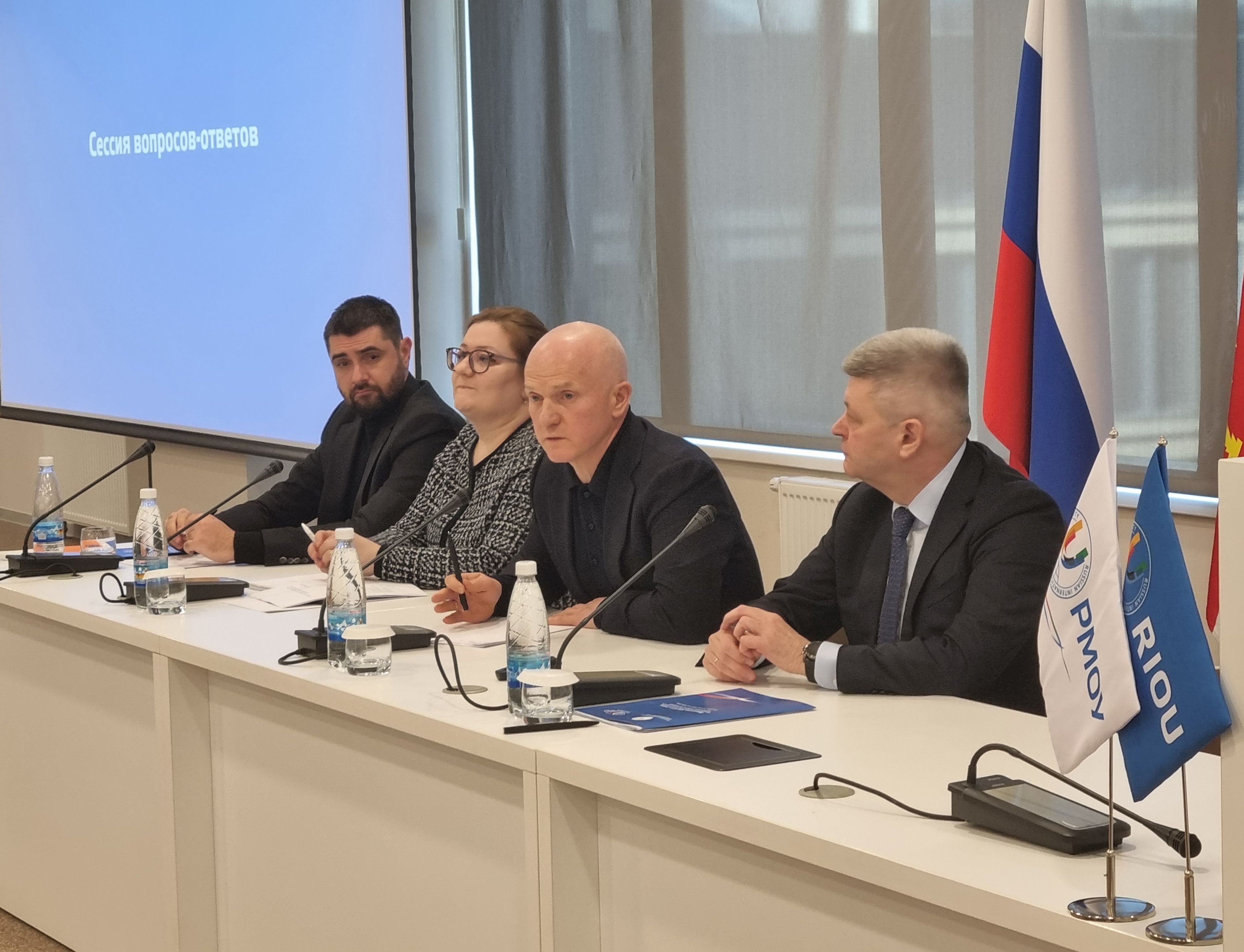
Lev Shagarov, Director for Sustainable Development at Krasnaya Polyana, highlighted the importance of creating and maintaining a barrier-free environment. Talking about human resources, he advocated prioritizing the local residents, whose share in the area has grown to 43%. This approach can help reduce staff turnover and ensure higher loyalty levels. The speaker also emphasized the vast potential of working with non-profit charitable organizations, mentioning the excellent conditions that the resort administration has created for such collaborations.
Sergey Khvorostyaniy, Deputy General Director for International Relations and Tourism at Rosa Khutor, expressed a view that the trend for attending major sporting events in winter is only just beginning in Russia. To achieve greater progress, more efforts should be made to promote such competitions effectively.
The final roundtable session focused on issues in hospitality infrastructure development and discussed China's expertise in promoting winter sports. Dmitry Bogdanov, Chairman of the Expert Council of the AMOS Hoteliers Association and Vice President of Russia’s National Union of the Hospitality Industry, talked about the opportunities ahead. He shared his confidence that ten years after the Games, Sochi is entering a new stage of its development. Sporting events provide a good basis for growth, but what is needed is an ongoing dialogue between hotel managers and owners of sporting events, which could be facilitated by the Russian International Olympic University, among other platforms.
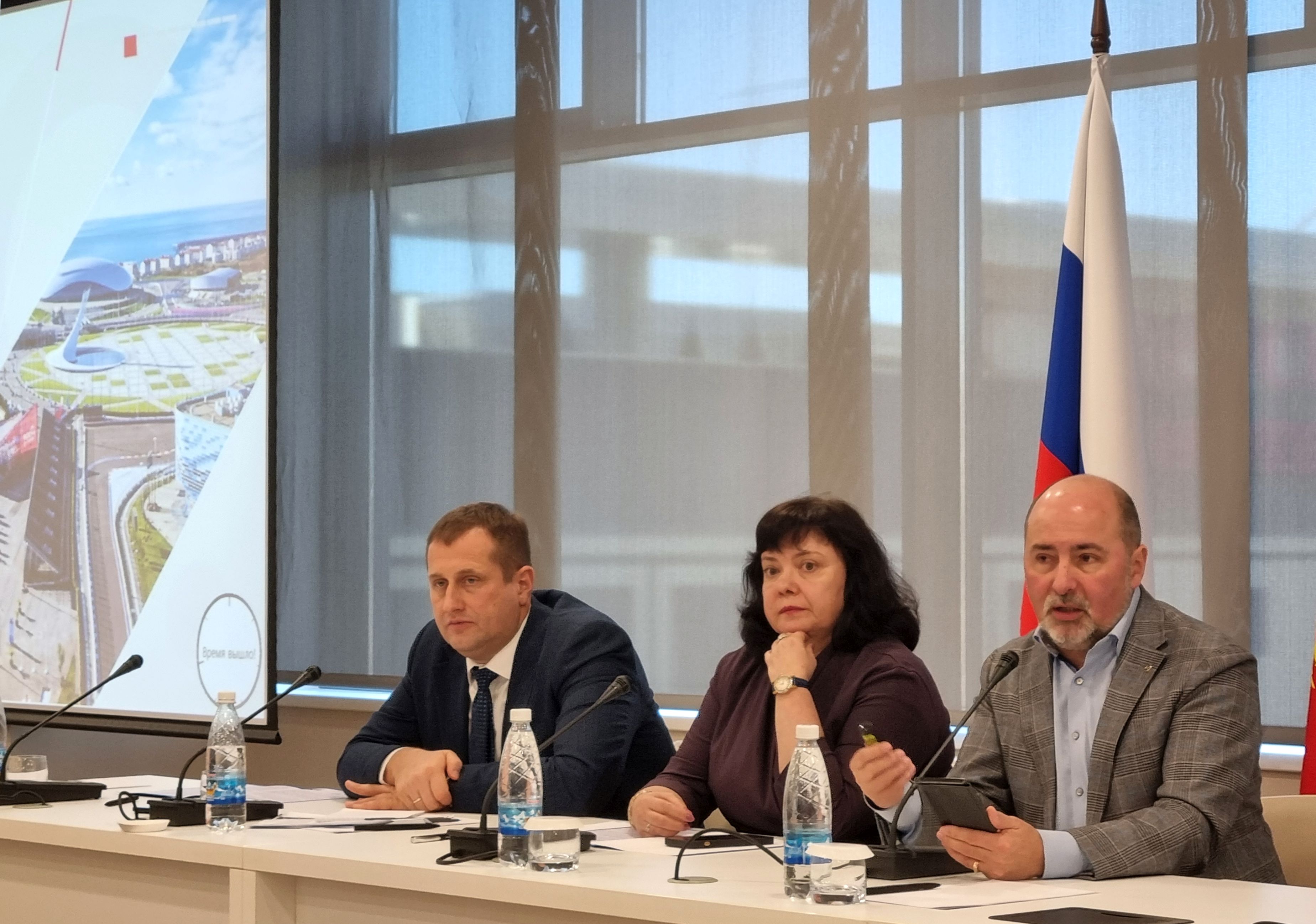
Artem Malgin, Vice-Rector for Development and Head of the MGIMO Rector's Office, spoke about the importance of training highly-qualified personnel for the hospitality industry. He highlighted the growing role of network training programmes, in which master's students can, for example, dedicate one semester to exploring tourism infrastructure in a destination that is new to them. One good example is provided by the Sports Management Master’s course delivered as a dual degree programme by MGIMO and RIOU.
Ru Xiuying, Professor of the Capital University of Physical Education and Sports (Beijing), shared interesting statistics on the development of the winter sports industry in China. The Chinese government had set a strategic goal of engaging 300 million people to participate in winter sports. This target was met (and exceeded!) in 2021.
The participants concluded that positive impacts of the Olympic and Paralympic Games in Sochi included a significant improvement of the urban environment, creation of new jobs and a twofold rise in the city's population. Loyalty of the local residents was described as a key determinant of the effective management of the Sochi 2014 legacy and an essential factor in ensuring sustainable development of the host region.
